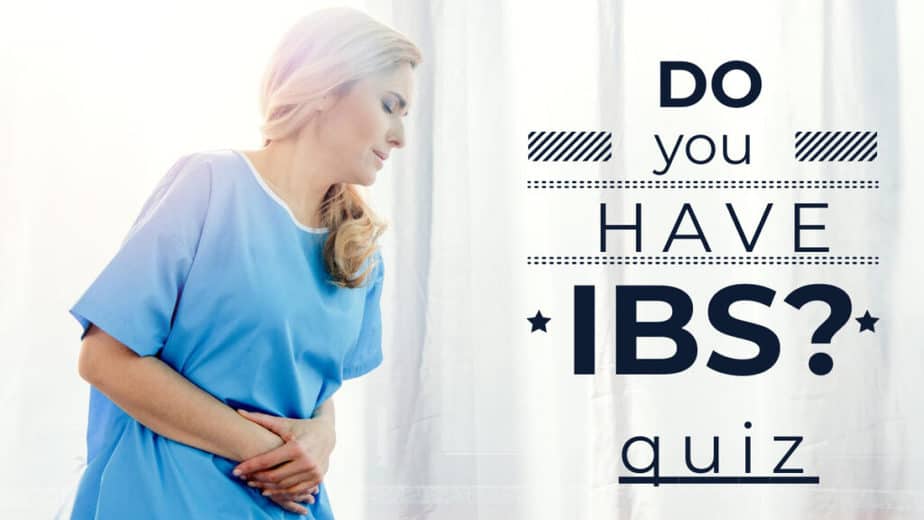Irritable bowel syndrome, or IBS, is a gastrointestinal disorder that can cause painful physical symptoms, and even have a negative impact on mental health.
Understandably, those who struggle with IBS are invested in finding a way to potentially alleviate symptoms or even cure IBS. But is IBS curable?
Unfortunately, there is no cure for IBS. There are, however, ways to treat and manage the condition.
While the underlying condition will still exist, the symptoms are lessened, and some may potentially be eliminated altogether.
But even if you successfully manage your IBS, it will not be cured.
To understand why IBS is a permanent condition, it’s important to understand what makes an illness curable.
In this guide, we’ll discuss why IBS can’t be cured, and what can be done instead to alleviate symptoms.
Although IBS may not have a cure, there are still plenty of positive steps to take once you’ve received your diagnosis.
- Related article: Best Relief for IBS
What Is Curable Versus Treatable?
Understanding the difference between curable and treatable is vital to understanding why IBS may never be gone, but can be improved.
Successfully treating IBS might mean that you never suffer from the symptoms again. Hearing that can be confusing. How can IBS be treated that well, and still not count as cured?
The reason for this is the fundamental difference between curable and treatable.
A curable illness is one that, with proper care and attention, can go away and not come back. At the end of treatment, the underlying cause for the illness will be removed.
For example, a bacterial infection correctly treated with antibiotics can be cured. When you reach the end of a successful course of antibiotics, the bacteria causing the infection should be eliminated from the body.
Treatable, however, isn’t as clear-cut. Treatment will lessen the severity of the condition, and may even alleviate it entirely. However, the underlying cause still remains, and there is a risk that symptoms recur.
How Does This Relate To IBS?
IBS cannot be cured, because the underlying cause will remain. It is treatable, because with the correct diet and lifestyle, flare-ups can be reduced to the point of almost non-existence.
But the underlying cause will still be there, which is why managing IBS is often a long term and even permanent lifestyle change.
Is IBS Curable?
IBS is not curable, but it is treatable. The underlying cause will not be removed with treatment, but the painful symptoms and effects can be greatly reduced.
IBS is known as a chronic condition. It’s long term, and once developed may never be fully gone. However, it doesn’t cause lasting damage or limit life expectancy, and isn’t a precursor to other conditions.
Medications can be used to treat IBS, but they are not a cure for the condition. Medication will often only be prescribed after attempting to treat IBS with a dietary change.
These medications may focus on treating a certain aspect of IBS, or as a general treatment.
The primary way to treat IBS is through diet and lifestyle modification. Once your IBS has been diagnosed, your doctor will help you to create a diet designed to alleviate the effects of IBS.
They may also suggest certain lifestyle changes, such as smaller meals, regular exercise, and reducing stress.
By sensitively managing IBS, it is possible to be free of symptoms. It does not mean the IBS is “cured” as the underlying issue is still there.
Changes in diet and lifestyle or acute stressors may lead to IBS symptoms returning, in both the short and long term.
One issue with discovering a potential cure for IBS is the wide variety of causes. Read more about IBS triggers here.
Specific foods, stress, hormones, and previous illnesses, may all lead to developing IBS symptoms.
With similar reactions caused by different triggers, treating IBS is often highly personalized.
Can IBS Go Into Remission?
Yes, IBS can go into remission. This is when the symptoms of IBS disappear for long periods of time. In some cases, IBS can go into remission for months, and even years. It’s possible that IBS symptoms may go away entirely.
However, when IBS goes into remission, there is always the potential for a future flare-up. These flare-ups can be unexpected, and often quite uncomfortable and disruptive.
A flare-up may be the result of a diet or lifestyle change, and may necessitate a change in your IBS treatment.
This long remission period can lead some to believe that they have successfully cured their IBS. As the root cause remains, this is not true. Even IBS in a long remission period has not been cured.
Will There Ever Be A Cure For IBS?
Over time, our understanding of IBS has greatly increased.
Better methods of diagnosis, a greater understanding of triggers, and a clearer knowledge of the physical effects, can all help doctors effectively treat IBS for a range of patients.
As we move closer to understanding the causes and effects of IBS, we can continue to improve our methods of treatment.
Successfully identifying what has triggered IBS in an individual can help to quickly find the dietary changes that may be needed.
Our knowledge of IBS may be growing, but that doesn’t mean a cure is forthcoming. IBS remains a complicated, and highly personalized, illness.
Any successful cure is likely to remain a long way off.
Rather than hoping to find a cure, the best course of action to take is managing your symptoms effectively. By managing IBS, symptoms can be alleviated in the long term.
Discuss with your doctor dietary and lifestyle changes, and any potential medications that may be used to manage your IBS symptoms.
Is IBS Curable? Final Thoughts
There is no cure for IBS, but personalized treatment can make living with it much easier. IBS can go into remission for long periods of time, and some may find IBS has little effect on their day to day.
Even in these cases, IBS isn’t “cured.”
Due to the complex nature of the condition, a cure for IBS is not yet forthcoming.
However, our understanding of effective treatment strategies and the underlying causes of IBS may help find a cure in the future.
Check out these other articles and guides to keep your gut healthy:


